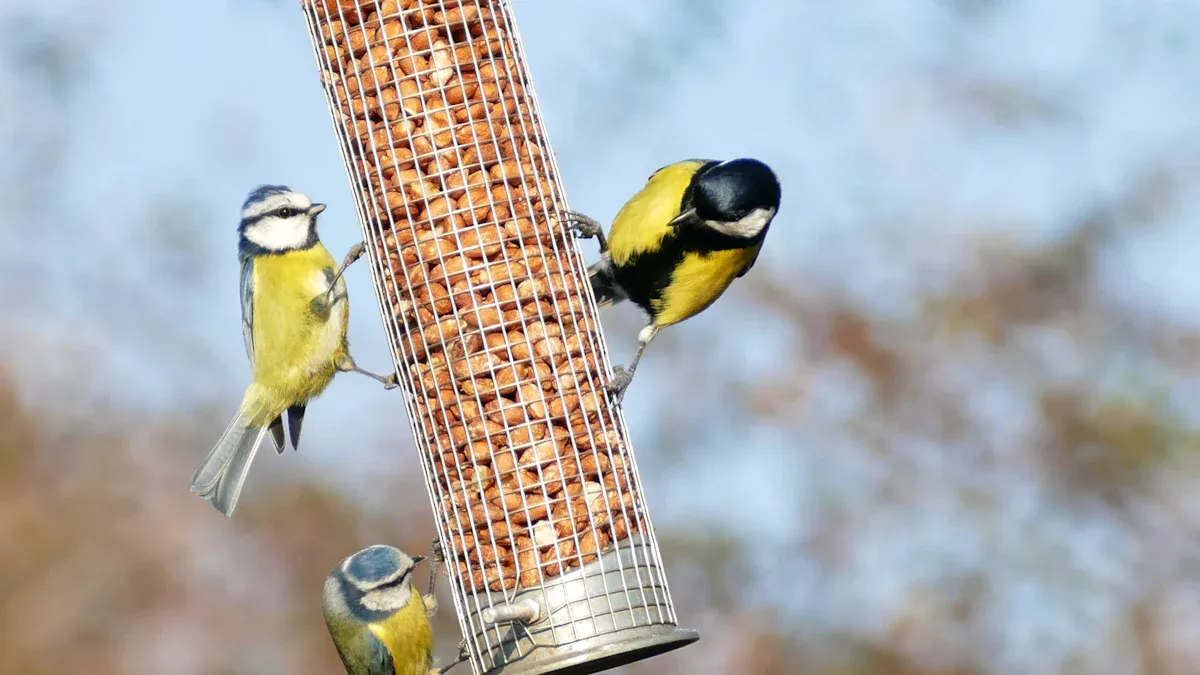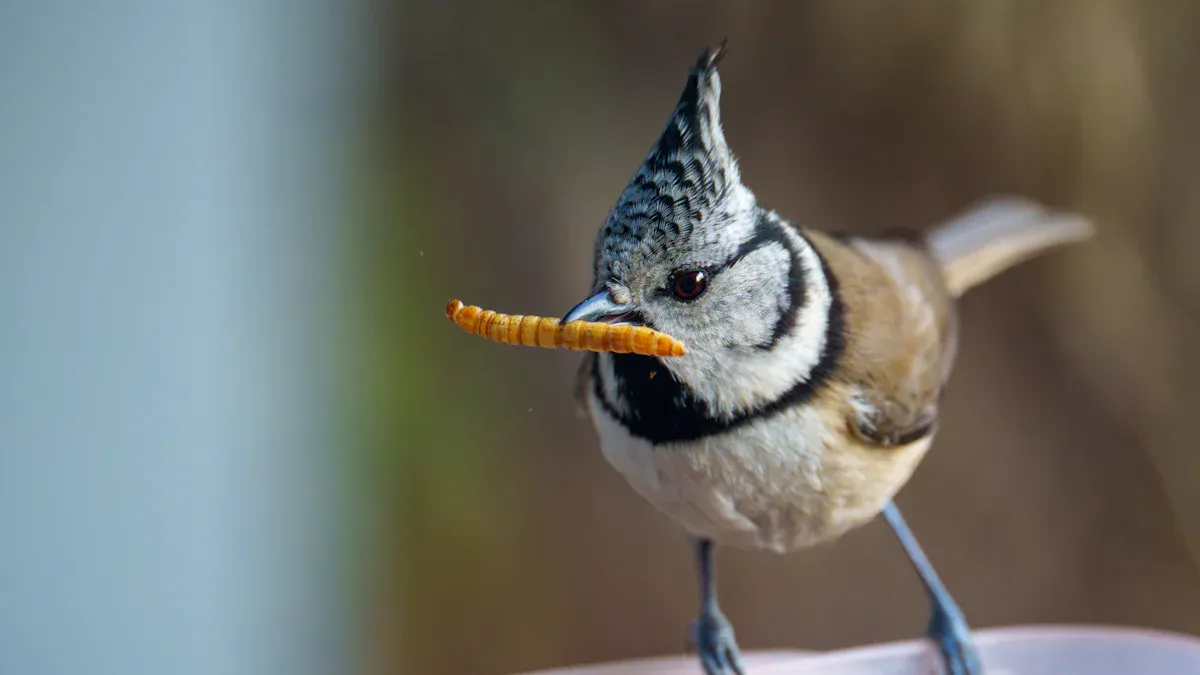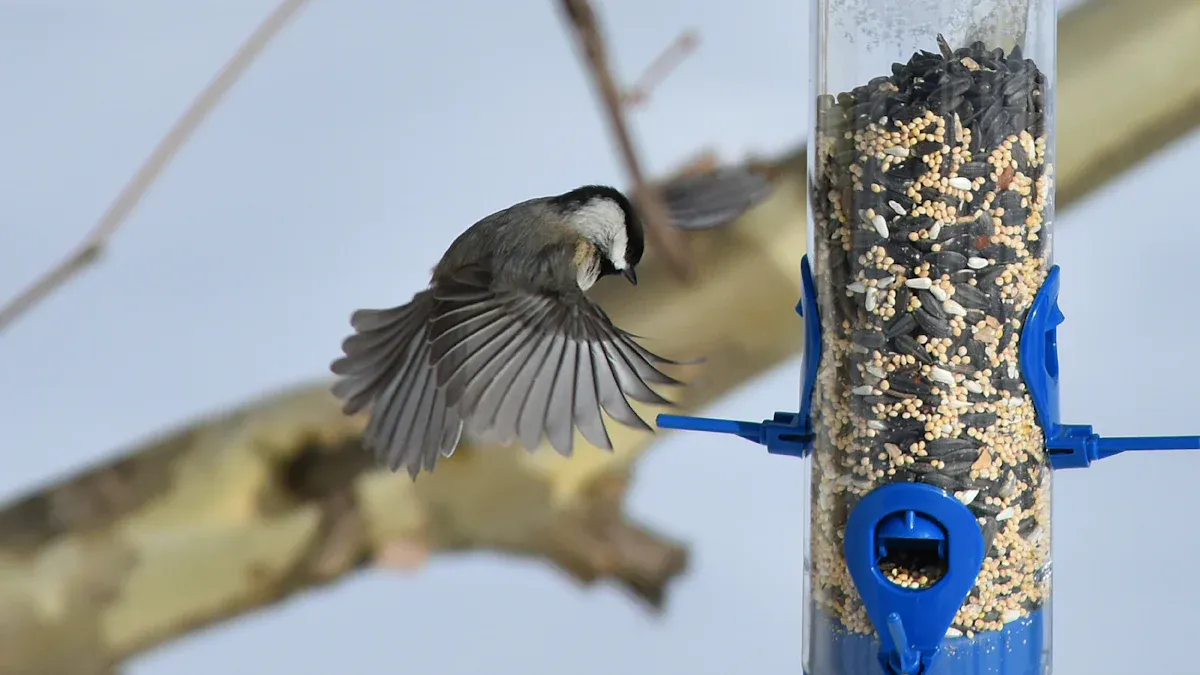
Dried mealworms are a powerhouse of nutrition for birds. Packed with 52.8% protein and 24.7% fat, they provide the energy your feathered friends need, especially during nesting season. Their high protein content supports growth and development, while essential vitamins and minerals, like calcium and zinc, promote overall health.
🐦 Did you know? Dried mealworms for birds are easier to store and handle than live ones, making them a convenient choice for bird enthusiasts like you!
Key Takeaways
- Dried mealworms give birds protein and good fats for energy.
- They help birds grow, stay healthy, and have strong feathers.
- Feed mealworms slowly and not too much. Add other foods too.
Nutritional Benefits of Dried Mealworms for Birds

Protein for Growth and Development
Protein is the building block of life, and for birds, it’s no different. Dried mealworms are packed with protein—around 50% by weight—which plays a vital role in muscle development, feather growth, and maintaining energy levels. This makes them an excellent choice for growing chicks and adult birds alike. During the nesting season, parent birds rely on high-protein foods like dried mealworms to feed their young, ensuring they grow strong and healthy.
Certain bird species, such as bluebirds, wrens, and robins, benefit even more from this protein boost. These insectivorous birds thrive on the nutrients found in dried mealworms, which help them stay active and vibrant. By adding dried mealworms for birds to your feeding routine, you’re giving them the fuel they need to flourish.
Healthy Fats for Energy and Warmth
Dried mealworms aren’t just about protein—they’re also rich in essential fatty acids. These fats provide birds with the energy reserves they need, especially during demanding times like migration or breeding seasons. A single cup of dried mealworms contains a higher concentration of fats compared to many other bird food options, making them a superior energy source.
The fats in dried mealworms also help birds stay warm during colder months. Think of it as nature’s way of giving them a cozy winter coat! Plus, these fats support energy metabolism, keeping birds active and ready to forage, even in challenging conditions.
Vitamins and Minerals for Balanced Nutrition
Dried mealworms for birds are more than just protein and fat—they’re a treasure trove of essential vitamins and minerals. They contain nutrients like vitamin B, which aids in energy metabolism, and minerals like calcium and zinc, which support healthy organ function and strong immune systems. These nutrients are especially important during the breeding season, helping parent birds stay healthy while caring for their chicks.
However, it’s worth noting that dried mealworms may lack certain vitamins and minerals. To ensure your feathered friends get a balanced diet, consider supplementing their meals with other nutrient-rich foods. This way, you’ll provide them with everything they need to thrive year-round.
How Dried Mealworms Enhance Bird Health
Supporting Energy Levels and Activity
Dried mealworms are a fantastic energy booster for birds. Their high protein content—around 50% by weight—helps birds stay active and maintain muscle strength. This is especially important during the breeding season when parent birds need extra energy to care for their chicks. The essential fatty acids in mealworms also play a key role in energy metabolism, keeping birds lively and ready to forage.
🐦 Pro Tip: Soak dried mealworms in water before feeding them to birds during nesting season. This adds hydration, making them safer for nestlings.
During colder months or harsh weather, dried mealworms for birds become even more valuable. They provide the nutrients birds need to sustain their energy levels when natural food sources are scarce. By offering mealworms, you’re helping your feathered friends thrive, no matter the season.
Improving Feather Quality and Appearance
Beautiful, healthy feathers start from within, and dried mealworms can help. Their high protein content supports strong feather growth, ensuring birds look vibrant and well-groomed. Birds, like chickens, even require extra protein during molting to replace old feathers with new ones.
The fatty acids in mealworms also contribute to maintaining feather health. These nutrients keep feathers shiny and resilient, which is crucial for insulation and flight. By adding dried mealworms for birds to your feeding routine, you’re giving them the tools they need to look and feel their best.
Boosting Immune Function and Vitality
A strong immune system is vital for birds to fend off illnesses and stay healthy. Dried mealworms are packed with essential nutrients like vitamins, minerals, and fatty acids that support immune function. The protein in mealworms also aids in muscle development and energy production, which are key to overall vitality.
During challenging times, such as the nesting season or adverse weather, these nutrients become even more critical. By providing dried mealworms, you’re not just feeding birds—you’re helping them build the resilience they need to thrive in their environment.
Practical Tips for Feeding Dried Mealworms to Birds

Selecting High-Quality Dried Mealworms
Choosing the right dried mealworms ensures your birds get the best nutrition. Look for mealworms rich in protein, fats, and vitamins like vitamin B, which supports energy metabolism. This is especially important during the breeding season when birds need extra nutrients for their chicks. Always buy from reputable suppliers to avoid pesticides or harmful substances. Check the packaging to ensure the mealworms are fresh, free from mold, and not expired.
Some brands, like TradeKing, offer veterinarian-certified mealworms that meet high-quality standards. These certifications guarantee purity and safety, giving you peace of mind. Ethical farming practices are also worth considering. Supporting suppliers who prioritize humane treatment of insects contributes to sustainability and responsible production.
Feeding Guidelines and Moderation
Feeding dried mealworms in moderation is key to keeping birds healthy. For chickens, offer 1-2 tablespoons of mealworms daily for every five birds. Alternatively, you can feed about 10-15 mealworms per chicken once or twice a week. Adjust portions based on the bird’s size, age, and activity level. If you’re unsure, consult a veterinarian for personalized advice.
🐦 Note: Dried mealworms should not be the sole food source for birds. Overfeeding can lead to dietary imbalances, obesity, or digestive issues. Balance their diet with seeds, fruits, and other natural foods.
Attracting Birds with Dried Mealworms
Want to draw more birds to your yard? Start by soaking dried mealworms in lukewarm water to make them more appealing. Offering live mealworms initially can also help attract birds unfamiliar with dried ones. Use a platform feeder or a rimmed dish to keep the mealworms contained. Position feeders near trees or shrubs to make birds feel safe.
Certain species, like bluebirds, wrens, and titmice, love mealworms. To accommodate different birds, choose feeders with large trays or hanging designs. With a little patience, you’ll soon have a lively, feathered crowd enjoying your offerings.
Dried mealworms are a game-changer for bird enthusiasts. They’re easy to store, require no maintenance, and can be fed straight from the package. This convenience makes them perfect for busy individuals. Plus, their high protein content supports growth and energy, while essential fats and vitamins boost immune health and feather quality.
🐦 By adding dried mealworms to your feeding routine, you’re helping birds thrive with vibrant feathers, strong immune systems, and boundless energy.
FAQ
What makes dried mealworms a great food choice for birds?
Dried mealworms are packed with protein, essential for growth and development. This high protein content is especially helpful during nesting season when birds need extra nutrients.
Can I feed dried mealworms to all bird species?
Yes, most birds enjoy mealworms, especially insectivorous ones like bluebirds and robins. However, always offer them as part of a balanced diet.
🐦 Tip: Introduce mealworms gradually if birds are unfamiliar with them.
How should I store dried mealworms?
Keep them in a cool, dry place in an airtight container. Proper storage prevents spoilage and ensures they stay fresh for your feathered friends.


